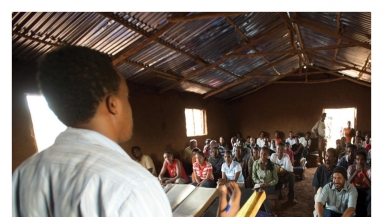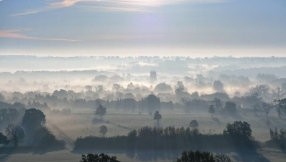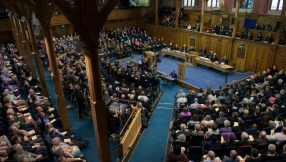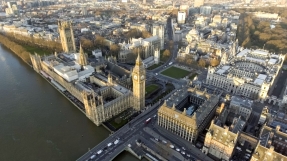
The Eritrean government is being urged to grant full religious freedom after 20 years of state persecution that has seen churches closed and Christians imprisoned or forced to flee.
It is 20 years ago this month that the Eritrean state banned every religion except Sunni Islam and the Eritrean Orthodox, Roman Catholic and Lutheran Churches.
The May 2002 clampdown resulted in most churches in the country being forcibly closed, with even registered churches subject to tight state control.
Since then, Christians worshipping in banned churches, particularly Evangelical and Pentecostal, have been branded enemies of the state.
Dr Berhane Asmelash, an Eritrean Christian and partner of Release International, said, "Eritrea is like a giant prison. The country is filled with jails. It is like North Korea."
Release partners estimate that at least 220 Christians are behind bars in Eritrea - many of them believed to be Pentecostal or Evangelical.
The charity, which supports persecuted Christians around the world, said that in many cases, Christians are imprisoned indefinitely and held without charge in secret locations.
Some have endured brutal torture, including being tied up and hung from trees, with one form of hanging dubbed 'the Jesus Christ' because it looks like a crucifix.
Others have been held in horrendous conditions in shipping containers.
This was the experience of one former Christian prisoner, Elsa, whose name has been changed for security reasons.
She described authorities offering freedom in return for denying Christ.
"We were kept in underground cells. Sometimes the guards put us in a metal shipping container to torture us. This became so hot during the day, and then in the night it became freezing cold. We didn't get much to eat and there was no medical treatment," she said.
"The guards offered to let us go, but only if we renounced our faith in Jesus. We said no.
"One evening we were taken into the bush, and I knew we were going to be beaten. They were going to inflict as much pain on us as they could. The guards took it in terms to beat us. I will never forget hearing the screams of my sister. I never saw her again."
Another called Dawit, whose name has also been changed for security reasons, said he still has back pain as a result of having his legs doubled up behind his back and tied to his wrists.
"I was arrested because of my Christian faith. Each night I had to sleep on the floor with my arms and feet tied together tightly, they called it the Number 8," he told Release.
The repressive state has seen an estimated half a million people flee the country, according to the UN, but the harsh conditions have failed to quell Christianity.
"Yet, Christianity has continued to grow in Eritrea," said Dr Berhane.
"Christians are the most persecuted group. It is because they won't stop gathering and won't stop worshipping. It is beyond the government's control."
Dr Asmelash said that the persecution was being driven by a desire for total control over the people.
"Religion is power. Every village has a church," he said.
"The church is the centre of the community. Remove the church and the community will be left without leaders.
"The Eritreans believe if they kill the priests and leaders, they can easily manipulate the people.
"So wherever they go, if they see a priest they will kill him."
Release CEO Paul Robinson is calling on the Eritrean government to release Christian prisoners and restore religious freedom to Eritrea.
"Freedom of faith is the cornerstone of all human freedoms," he said.













